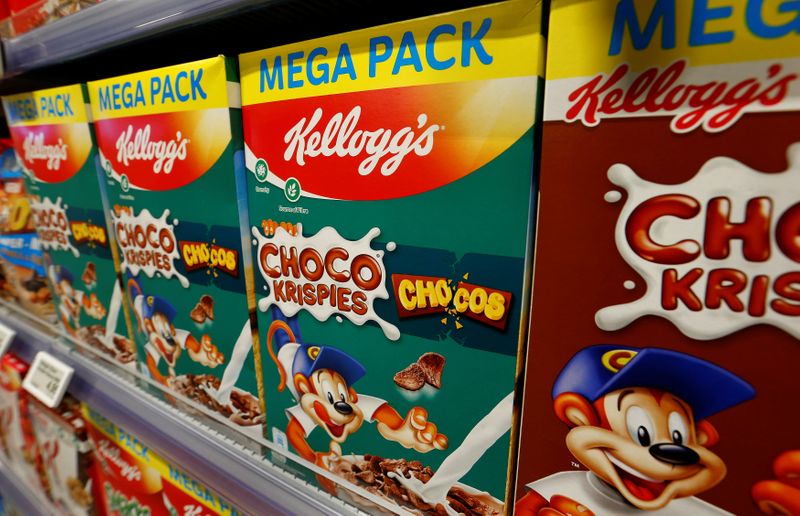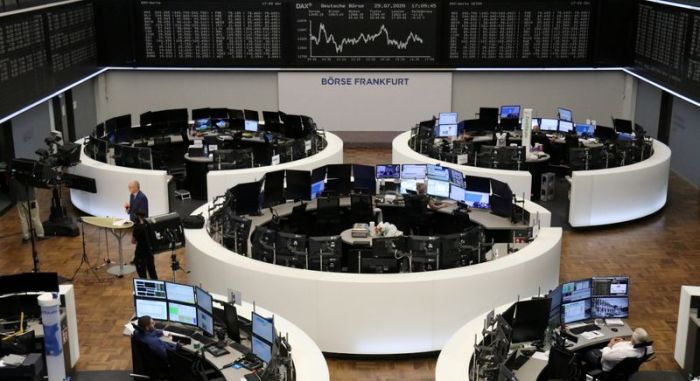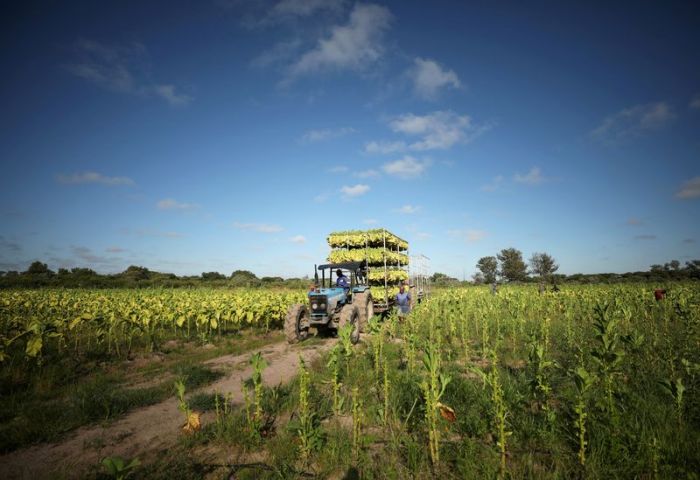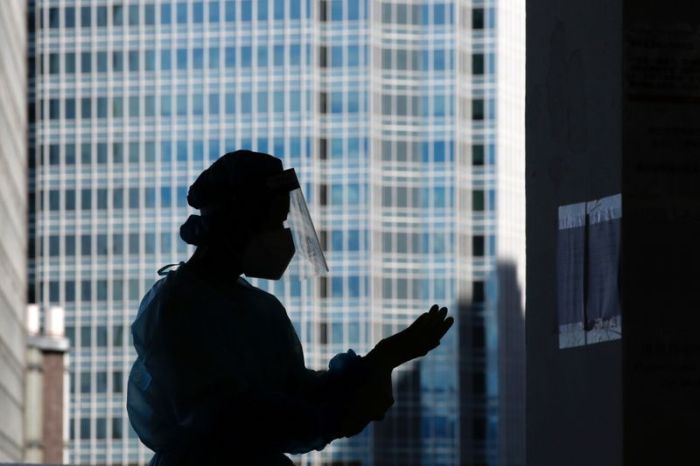(Reuters) – Kellogg Co <K.N> raised its annual sales and profit forecast on Thursday, as stuck-at-home consumers loaded up on its breakfast cereals due to the COVID-19 pandemic.
The company’s shares rose as much as 2.6% in the morning to hit an over 21-month high.
Work-from-home policies and the school closures to curb the spread of the novel coronavirus have led to a surge in demand for Corn Flakes, Froot Loops and Eggo waffles in North America. Kellogg’s overall organic net sales in the region rose 11% in the second quarter ended June 27.
However, the company warned that it was not sure how long cereal demand would stay at those elevated levels and warned net sales growth would likely slow in the second half of the year.
“What I’d say about cereal consumption- It’s been pretty choppy. We’re just going to have to continue to take a wait-and-see approach,” Chief Executive Officer Steve Cahillane said.
The jump in sales in the early part of the year was part of a broader rush by consumers to stock up on groceries with other packaged food companies such as Kraft Heinz Co <KHC.O> and Hershey Co <HSY.N> seeing growing demand.
Overall second quarter net sales stayed at about $3.47 billion, roughly flat from a year ago, due to the sale of Kellogg’s Keebler cookie business last year. Analysts had expected net sales of $3.30 billion, according to IBES data from Refinitiv. https://reut.rs/3f7fa12
Organic net sales rose 9.2% in the quarter.
Kellogg raised its organic sales growth forecast to about 5%, from a prior outlook of an increase of 1% to 2%. The company also expects annual adjusted earnings per share to fall about 1%, compared with its previous forecast of a 3% to 4% decline.
Excluding items, Kellogg earned $1.24 per share, beating analysts’ average estimate of 94 cents.
(Reporting by Mehr Bedi and Uday Sampath in Bengaluru; Editing by Rashmi Aich and Shailesh Kuber)

























